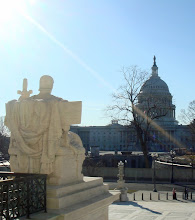Week 19: Cui bono?
In 80 B.C., Sextus Roscius (Roscius the younger) was on trial for patricide and was defended by Marcus Tullius Cicero. A focal point of the trial for both the prosecution and the defense was the question, cui bono? Who benefits?
Roscius’ father (Roscius the elder) had been murdered, and his name was subsequently – and fraudulently – put on a list of proscribed citizens, who essentially were political opponents of the tyrant Sulla. Such citizens were put to death and their properties (of which Roscius the elder had 13 estates) were confiscated and put up for public auction. Enemies of Roscius the elder, who orchestrated and committed his murder, purchased the 13 estates and evicted Roscius the younger from them, denying him his birthright.
To make a long story short (“Too late,” to quote Col. Mustard in the movie, Clue), Cicero demonstrated that Roscius the younger would realize no special benefit from murdering his father. After all, they were on good terms and the elder had not disinherited the younger. Furthermore, Roscius the younger was neither in the same town as his father at the time of the murder, nor had he the wherewithal to engage someone else to murder this father. He had no motive, and he had a strong alibi.
Roscius the younger was acquitted and Cicero bravely shone the light of justice on the perpetrators of Roscius the elder’s murder. Cui bono had been an integral component of a successful defense.
You, kind reader, may be asking what a 2,100-year-old legal case has to do with this year’s election. It is simply my admonishment – or rather my plea – to examine each candidate and his or her policy proposals and to ask the simple question, “who benefits?”
In asking this question, do not stop at the prima facie beneficiary. Like Cicero, thoroughly examine the issues and policy proposals. Pick them apart. Understand them. Honestly assess them. In the previous 33 posts, we’ve examined how many, if not most or all, policies and proposals are, at their heart, designed to strengthen and sustain the power of the political class. In so many cases, those who are said to be the beneficiaries turn out to be the victims.
Education, healthcare and equality, to name just a few issues, are the foci of politicians’ policy proposals every two and four years. Despite this, our public education system continues to fail too many children, our public healthcare system continues to fail the sickest and poorest among us, and as we are seeing today, hatred and animosity based on race, gender and any other characteristics that are irrelevant to the moral worth of an individual are destroying our social contract.
Compounding these and other problems, anyone who speaks out and suggests that We the People (i.e., individual citizens) are not to blame but those in office, especially at the federal level, is labeled a bigot of one form or another and effectively bullied into silence and servile submission.
I contend, gentle reader, that the disharmony we are experiencing today benefits one group and one group only. That group is not White men, Black women, gender-fluid Brown pangenders, blonde atheists, blue-eyed Baptists, bald Democrat voters or hazel-eyed Republicans, etc., etc., etc. The group to which I am referring is the group of elected officials, namely Representatives, Senators and even presidential candidates of the two major political parties, whose principal interest is in maintaining and augmenting power. In such maintenance and augmentation, they thereby pave the road to their own corruption and, subsequently, your destruction and mine.
In the securing the harmonious execution of our social contract, neither you nor I – simply being citizens – benefit in any way from any “-ism.” Each “-ism,” when one really thinks about it and looks at root causes, serves no individual self-interest. Each “-ism,” though, serves the interests, which is to say the benefit, of the political class. Without the ability to drive us apart and to set us at one another, politicians of today have no issues on which to campaign. With very few exceptions, they lack the creativity, virtue and understanding of individuals as fundamentally good and free agents to run on a platform of protecting the social contract, fostering individual liberty and, as Adam Smith would suggest, promoting the common good through that contract and through such liberty.
I know this is a controversial stance, but I am certain it is a true and provable position.
As you enter the polling booth – actually, well before you enter that sacred space – look at your candidates’ positions and consider who they benefit. Cui bono? Are benefits derived by you, me, our fellow citizens, or are they designed for the candidates and the political class? Consider this well, then vote accordingly, lest we be wrongly accused and evicted from our metaphorical lands, which is to say denied the rights and liberties to which we, as American citizens and as human beings, are entitled.

No comments:
Post a Comment